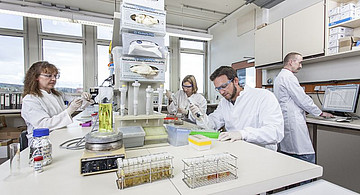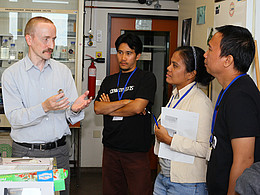The German Primate Center operates a hormone laboratory that acts as an independent service unit. The laboratory has a long standing experience in developing and using endocrine methodologies (steroid hormone analysis from blood, saliva, urine and faeces) for the assessment of reproductive status and physiological stress in primates and other mammal species, for example elephants. In the past more than 25 years, the hormone laboratory provided essential support for biomedical and comparative field based research conducted as part of the scientific activities of several research units within our institute as well as supporting the breeding management of our marmoset colony.
This work also provides the basis to offer our expertise and methodological competence particularly in non-invasive hormone measurements (urine and faecal analysis) as a service to external partners from science, conservation and the zoo community. Our expertise and facilities are utilized by the scientific community at large and support an extensive (mainly primate-related) network of national and international collaborations mainly in behavioural endocrinology, behavioural ecology, reproductive biology, field endocrinology, conservation and husbandry and welfare.


As part of our numerous scientific collaborations, we are actively engaged in the training and supervision of bachelor, master and PhD candidates as well as guest scientists in practical and theoretical aspects of non-invasive hormone analyses. We also carry out practical courses for master- and PhD students as part of the teaching activities of the University of Goettingen.


